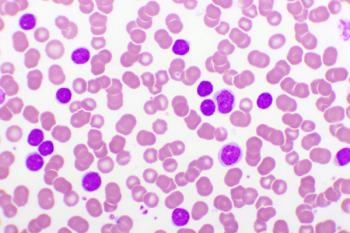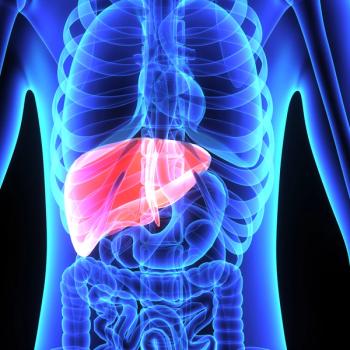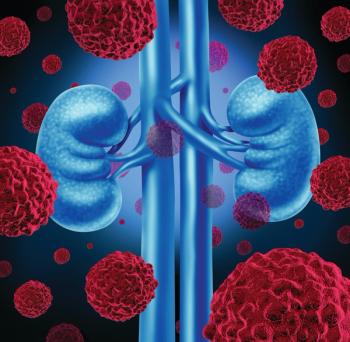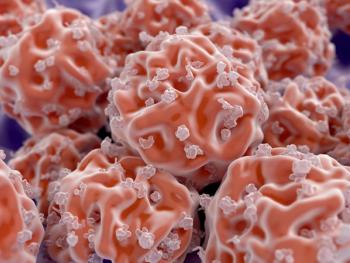
According to researchers, these findings suggest “that as long as a person is not smoking at the time of chemotherapy and surgery, they might do better.”

Your AI-Trained Oncology Knowledge Connection!


According to researchers, these findings suggest “that as long as a person is not smoking at the time of chemotherapy and surgery, they might do better.”

Among men with advanced prostate cancer, relugolix did not achieve statistical superiority for castration resistance-free survival compared to leuprolide acetate in men with metastatic disease through 48 weeks.

The ATR inhibitor BAY 1895344 appeared promising in patients with a range of advanced, heavily pre-treated cancers in a dose-escalation portion of a phase 1 clinical trial.

The FDA issued the final guidance in order to help improve the information available to patients and health care providers about the risks of breast implants.

TLX591-CDx (illumet) is a radiopharmaceutical targeting prostate-specific membrane antigen intended for the imaging of prostate cancer using positron emission tomography.

These study findings suggested that topical minoxidil and procedural interventions may aid in the treatment of persistent radiation-induced alopecia among patients with primary central nervous system tumors or head and neck sarcomas.

This study found that among clinical trials in which patients with non-small cell lung cancer were treated with atezolizumab, multiorgan immune-related adverse events were reported in 5.4%.

According to researchers, this “group represents more than 20% of children and young adults with ALL, and an increase in attention to adherence, supportive care, and logistics for patients living [more than 50] miles from their treatment center is warranted.”

The study is evaluating the efficacy and safety of sintilimab injection in combination with bevacizumab biosimilar injection compared to sorafenib in the first-line treatment of patients with advanced hepatocellular carcinoma.

According to researchers, a “better understanding of the heterogeneity of mCRC, including primary tumor location, microsatellite instability (MSI) status, and other clinically actionable tumor mutations, is reshaping the therapeutic landscape.”

Researchers suggested these results from CheckMate-274 “point to the potential for nivolumab to become a new standard of care in the adjuvant setting, extending disease-free survival for post-surgery patients with muscle-invasive urothelial cancer without the use of chemotherapy.”

The designation was granted to DKN-01 for the treatment of patients with gastric and gastroesophageal junction adenocarcinoma whose tumors express high levels of DKK1.

The submission is based on results from the phase 2 LOTIS 2 clinical trial, which is evaluating the efficacy and safety of loncastuximab tesirine in patients with relapsed or refractory DLBCL following at least 2 lines of prior systemic therapy.

The supplemental new drug application seeks approval for crizotinib (Xalkori) to treat pediatric patients with relapsed or refractory systemic anaplastic large cell lymphoma that is ALK positive.

According to researchers, these early data support the rationale for further evaluation of immune-checkpoint inhibitor-based combinations in patients with metastatic castration resistant prostate cancer.

The biologics license application for idecabtagene vicleucel is for the treatment of adult patients with multiple myeloma who have received at least 3 prior therapies, including an immunomodulatory agent, a proteasome inhibitor, and an anti-CD38 antibody.

The addition of tucatinib to trastuzumab and capecitabine in patients with HER2-positive metastatic breast cancer with and without brain metastases resulted in statistically significant and clinically meaningful improvements in progression-free and overall survival.

The liquid biopsy was approved by the FDA for comprehensive genomic profiling in patients with any solid malignant neoplasm.

The phase 3 SOLO-1 trial is evaluating olaparib versus placebo as a first-line maintenance treatment in patients with newly diagnosed, advanced BRCA-mutated ovarian cancer who had a complete or partial response following platinum-based chemotherapy.

The clinical trial is comparing enfortumab vedotin-ejfv to chemotherapy in adult patients with locally advanced or metastatic urothelial cancer who were previously treated with a platinum-based chemotherapy and a PD-1 or PD-L1 inhibitor.

With a follow-up of 4 years, nivolumab plus ipilimumab continued to demonstrate superior, long-term overall survival and durable responses compared to sunitinib in patients with advanced renal cell carcinoma.

In our colorectal cancer quiz, you’ll get a chance to test your knowledge on the incidence of colorectal cancer and the risk factors associated with the disease.

These findings suggest that rozanolixizumab has good potential as a treatment for this patient population.

Results from the study suggest that ctDNA testing can be seen as a standard of care test for both common and rare genetic events for patients with breast cancer.

Researchers indicated these study findings “could be a note of caution for transplant centers to not take for granted that the frozen product they have received will show perfect recovery once thawed.”

The study evaluated the use of darolutamide in men with nonmetastatic, castration-resistant prostate cancer compared with placebo while they continued to receive androgen-deprivation therapy.

Researchers suggested this test “helps to clarify a woman’s risk of disease, reduce the potential for over- or under-treatment, and is a major step forward in individualizing a woman’s care.”

This study found that adjuvant chemotherapy in patients with resected pancreatic cancer after treatment with neoadjuvant FOLFIRINOX was not associated with improved overall survival.

The FDA granted breakthrough therapy designation to magrolimab for the treatment of newly diagnosed myelodysplastic syndrome.

In this study, patients with advanced urothelial carcinoma saw worse outcomes with proton pump inhibitor (PPI) use when treated with atezolizumab, compared with those who were not treated with PPIs.